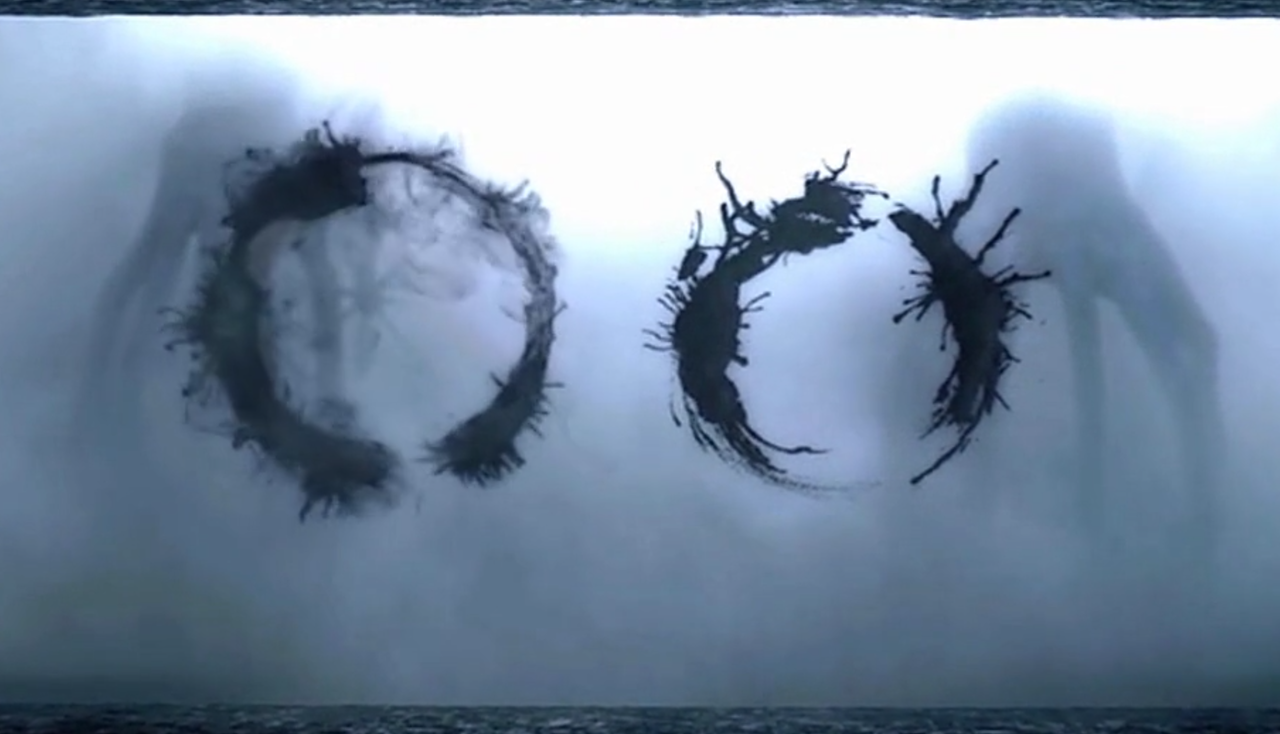

Film still from Arrival, dir. Denis Villeneuve, 2016.
In 1955, Albert Einstein sent a letter to the family of his friend, Michele Besso, who had recently died. Einstein had known Besso since they were both in college, and Besso was the only person Einstein thanked by name in his 1905 paper on special relativity. In his condolence letter, Einstein wrote, “Now Besso has departed from this strange world a little ahead of me. That means nothing. People like us, who believe in physics, know that the distinction between past, present and future is only a stubbornly persistent illusion.” He wasn’t speaking metaphorically; he was referring to a discovery he had made when developing his theory of special relativity.
Before Einstein, people assumed that there was a clear distinction between past, present, and future: the past was fixed, the future was yet to be determined, and the present was the line that separated the two. Moreover, people assumed that at any given moment, everyone could agree on what category any specific event belonged to, no matter where they were. What Einstein discovered was that things weren’t so simple.
Einstein showed that, if you and I are moving at different velocities, you could perceive two events as occurring simultaneously, while I would perceive one event as taking place before the other. And this wouldn’t be a misunderstanding based on an illusion or a communications delay; there would be no way for either of us to prove that one was right and the other was wrong. Einstein realized that the only explanation was that both of us are right. But if there was a moment when one event took place in my past and the other event lay in my future, how could that be reconciled with your observation that both events took place in your present? The solution is that the future is exactly as real as the past. There is nothing special about the present moment; it doesn’t convert the indeterminate into the fixed. The future is already out there; you and I might encounter events at slightly different angles, but those events are just waiting for us to catch up to them.
This is what Einstein was talking about in his letter to Besso’s family: in a physical sense, Besso’s death wasn’t any “realer” in 1955 than it had been in 1900 when he was a young man; it had always been out there, waiting for him to catch up to it. And while Einstein didn’t know that he himself would die a month later, he knew his death was waiting for him too, and always had been.
This may be disquieting, but relativity also suggests that there’s no way for you to gain information about your own future in advance; someone else might learn about your future before you do, but by the time they could tell you anything, you’ll have caught up to it yourself. The fact that the future is no different from the past may have far-reaching philosophical implications, but it has no practical ones. We will never know exactly what our future holds, so the conundrum that Louise Banks faces in my “Story of Your Life” (1998) isn’t one we have to deal with in the real world.
While the intellectual core of the story could be phrased as “How can one reconcile oneself to the fixed nature of the future?,” the emotional core is a different question: “How do we live with the knowledge that pain lies ahead of us?” No one in reality has to face the situation that the Louise of “Story of Your Life” faces, but many parents have to face a situation similar to the one faced by the Louise of Arrival, the film adaptation of the story: seeing their child diagnosed with a terminal illness and figuring out how to be a parent with that knowledge. More broadly, we all know that loving someone means potentially setting yourself up for pain in the future. If you want to avoid any possibility of loss, you would have to completely shut yourself off from love. And that is ultimately what the story and the film are about; that’s the conundrum that we all have to solve for ourselves.
This piece originally appeared as a foreword to The Art and Science of Arrival (2022).